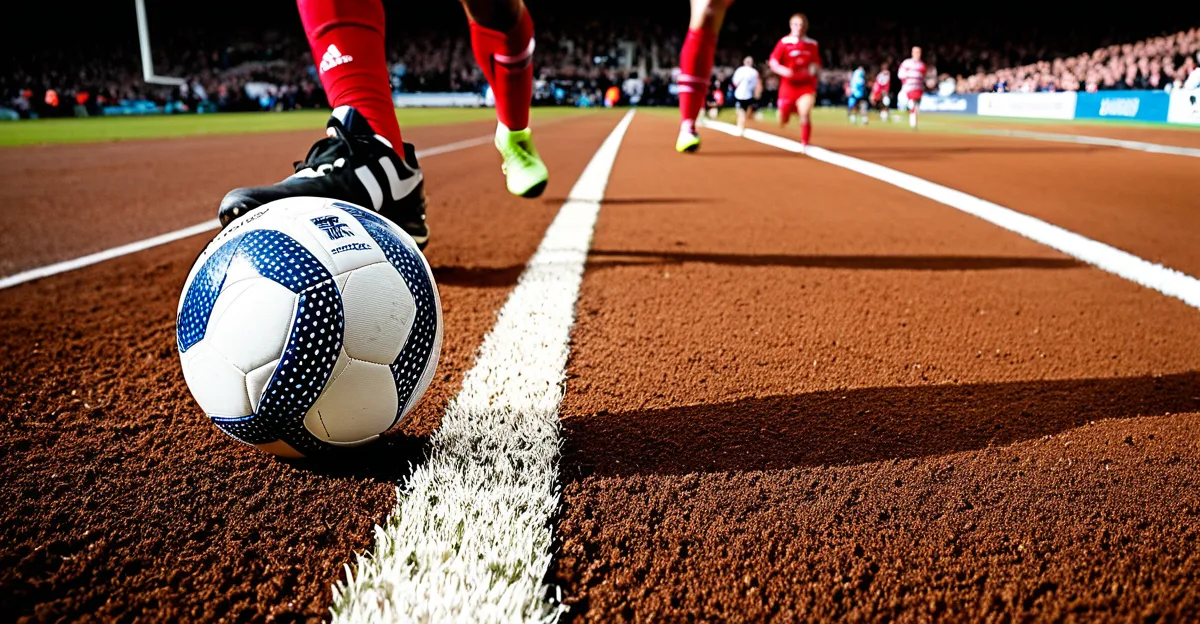Iconic Pre-Match Rituals and Ceremonies
Before major UK sporting events, pre-match rituals create an electric atmosphere that unites spectators and players alike. One of the most powerful traditions is the singing of national anthems. These renditions act as a collective moment of pride and focus, often involving enthusiastic crowd singalongs, setting the tone for the game.
Traditional opening ceremonies vary but typically include formalities like handshake lines and dramatic team entrances. These customs are rich in symbolism, emphasizing sportsmanship and respect. For example, handshake lines encourage unity between competing teams, reflecting longstanding cultural customs intrinsic to UK sport.
This might interest you : Explore briliantz: your source for amazing gel blaster deals
The historical roots of these pre-match traditions often date back a century or more. Early customs evolved from local community gatherings and military parades, gradually becoming polished ceremonial acts. Over time, these practices have adapted, balancing respect for tradition with the excitement expected by modern audiences.
Understanding these UK sporting event traditions sheds light on how they maintain emotional resonance. They are not merely routine; they embody a deep connection between fans, teams, and heritage that enriches every game day experience.
Also to discover : What innovations are shaping the future of sports training in the UK?
Distinctive Fan Behaviours and Stadium Atmosphere
The vibe inside UK stadiums is shaped largely by fan traditions UK sports have nurtured over decades. One hallmark is the array of chants, songs, and coordinated crowd participation that echo through grounds from football to rugby. These chants, often passed down and modified by generations, provide a powerful sense of belonging and identity.
Supporters also express allegiance through distinctive dress codes and paraphernalia. Iconic scarves, face paint, and team colours transform stadiums into vibrant mosaics of fandom. These visual displays aren’t mere decoration; they symbolize loyalty and help unify the crowd as a “sea of supporters.”
This collective energy contributes to the much-discussed “12th man” effect—where the stadium culture itself boosts team performance by intimidating opponents and energizing players. Legendary venues become hallowed grounds not just for their history but by the crowd behaviours that create an unparalleled atmosphere. For example, chants rising in unison during a critical match can shift momentum significantly.
Understanding these elements deepens appreciation of UK sporting events. It’s not only about what unfolds on the pitch but how the fans’ distinctive traditions shape the thrilling experience unique to British sport.
Unique In-Game Rituals and Entertainments
In-game traditions play a vital role in enriching the UK sporting event traditions by keeping fans engaged beyond the core action. A prime example is the presence of UK sports mascots, which are both entertaining and symbolic. Mascot races, often staged during intervals, bring light-hearted competition to the field and delight audiences of all ages. These rituals have evolved from simple mascot appearances into elaborate, eagerly anticipated spectacles that blend humour with team spirit.
Interval events also highlight traditional foods and drinks, which form an essential part of matchday culture. Iconic offerings like pies, fish and chips, and pints of ale are more than refreshments—they’re a taste of regional identity deeply entwined with sporting customs. Such food traditions help maintain the energetic atmosphere and provide fans a shared experience that extends throughout the match.
Superstitions and symbolic gestures further colour the in-game traditions. From fans wearing lucky colours to players performing consistent pre-play rituals, these acts represent a collective belief in influencing the game’s outcome. They illustrate the emotional investment in UK sporting event traditions and highlight how personal and community identities are expressed within the very fabric of the sport.
Post-Match Celebrations and Closing Customs
Post-match celebrations are a cornerstone of UK sporting event traditions, providing players and fans a shared moment to honour success and reflect on the game. One of the most visible rituals is the trophy presentation, where the winning team is formally awarded silverware amid applause and fanfare. This ceremony often includes speeches and the symbolic passing of the trophy, reinforcing achievement and legacy.
Following the trophy presentation, players frequently participate in a lap of honour, circling the stadium to connect with supporters. This gesture fosters a personal bond between athletes and fans, celebrating victory collectively. Supporters contribute to this atmosphere through spirited singing of club songs, which vary by region and hold deep emotional resonance.
Certain victory rituals are deeply embedded in UK sports, especially at end-of-season or championship matches. The communal celebrations that erupt after a major win not only commemorate the occasion but also strengthen the cultural customs rooted in the sporting community. These traditions acknowledge the hard work throughout the season, while also symbolizing unity and pride across local and national levels. Such post-match rituals highlight how post-match celebrations extend the excitement well beyond the final whistle.
Cultural Significance and Enduring Legacy of UK Sporting Traditions
Understanding the tradition significance of UK sporting event traditions reveals their vital role in shaping UK sports culture. These customs do more than entertain; they embed deep-rooted identities for both local communities and the nation. For example, events like Wimbledon and The Ashes carry centuries-old legacies that link generations through shared heritage.
Over time, the preservation and adaptation of these customs ensure they remain relevant while honoring their origins. This balance allows event heritage to flourish, welcoming new fans without losing the core values and emotional resonance. Many traditions grow from humble beginnings but evolve to become national symbols, strengthening cultural pride.
Moreover, sporting traditions act as powerful social glue. They offer continuity amidst rapid societal changes by affirming local tales alongside broader national narratives. Celebrated rituals, such as the FA Cup’s historic ceremonies, demonstrate how these practices help foster unity, pride, and a collective sense of belonging.
In short, the cultural significance of UK sporting event traditions lies in their ability to connect past and present, keeping the heartbeat of UK sports vibrant and resonant for future generations.





